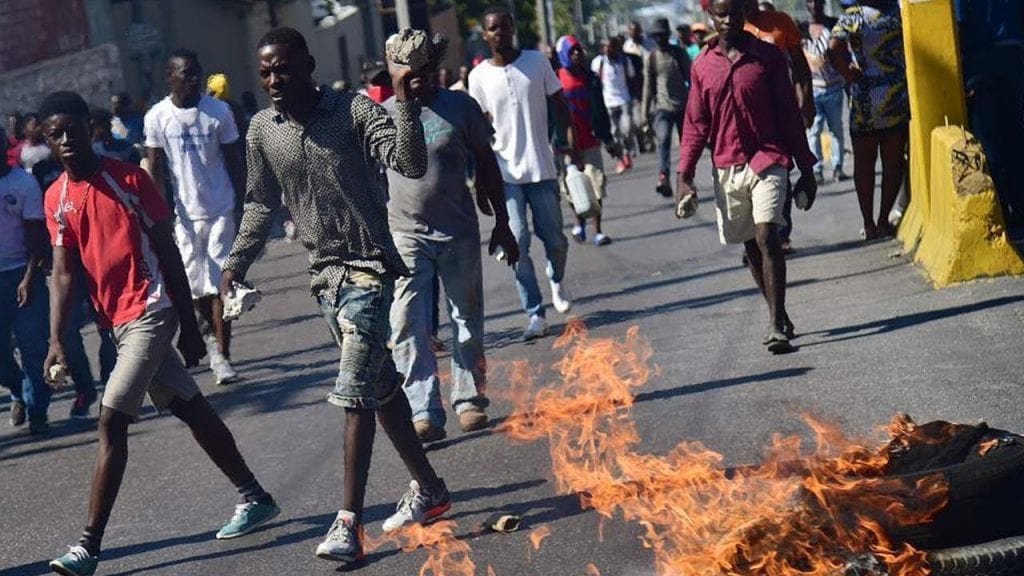
Amidst ongoing political turmoil, socioeconomic hardships, and natural disasters, Haitians are increasingly vocal about their desire for self-determination and sovereignty. On the heels of the summit on Monday in Kingston With CARICOM members and foreign personnel, a video is released with a Haitian telling a reporter that CARICOM can not help Haiti.
The sentiment against outside intervention in Haiti’s crisis is rooted in a complex history of colonization, exploitation, and external interference. Many Haitians feel that previous interventions have failed to address the underlying issues facing their country and have instead exacerbated tensions and perpetuated dependency.

Moreover, there is a growing mistrust of foreign powers and international organizations, with Haitians expressing concerns about neocolonial agendas and the erosion of their autonomy. The call for Haitian-led solutions to the nation’s challenges reflects a deep-seated desire for Independence and empowerment.
In a report from DW, a Haitian truck driver shares his views on outside intervention, notably, CARICOM. While talking to a reporter, he stated, ‘CARICOM Can’t do anything for us’ and expressed that the issues must be solved internally.
Learn more from the full report below:
Haiti’s Long Fight for Independence
Haiti’s path to independence from France was a tumultuous journey marked by rebellion, resistance, and revolutionary fervour. The island of Hispaniola, which comprises present-day Haiti and the Dominican Republic, was colonized by the French in the 17th century, with Haiti becoming a thriving hub of sugar, coffee, and slave trade.
The seeds of Haiti‘s quest for independence were sown during the French Revolution, which began in 1789. Inspired by the ideals of liberty, equality, and fraternity, enslaved Africans in Haiti saw an opportunity to fight for their own freedom. Led by figures such as Toussaint Louverture, a former slave turned revolutionary leader, and Jean-Jacques Dessalines, the Haitian people launched a series of uprisings against French colonial rule.
The pivotal moment came on January 1, 1804, when Haiti declared its independence from France, becoming the first independent nation in Latin America and the Caribbean, and the only nation in the world established due to a successful slave revolt. This historic proclamation followed years of fierce resistance, including the Haitian Revolution (1791-1804), which saw enslaved Africans rising up against their oppressors and ultimately overthrowing colonial rule.
The Declaration of Independence was a watershed moment in Haitian history, symbolizing the triumph of freedom over oppression and the resilience of the human spirit. It sent shockwaves throughout the world, challenging the prevailing notions of race, slavery, and colonialism.
However, Haiti’s independence came at a steep price. The newly formed nation faced economic isolation, diplomatic hostility from European powers, and internal strife as it sought to rebuild and establish its identity. France, unwilling to accept Haiti’s sovereignty, imposed crippling reparations on the fledgling nation, further exacerbating its economic woes.
Despite the challenges, Haiti’s struggle for independence remains a testament to the power of resistance and the indomitable will of its people. The legacy of the Haitian Revolution continues to inspire movements for liberation and social justice around the globe, reminding us of the enduring significance of Haiti’s quest for total freedom.



